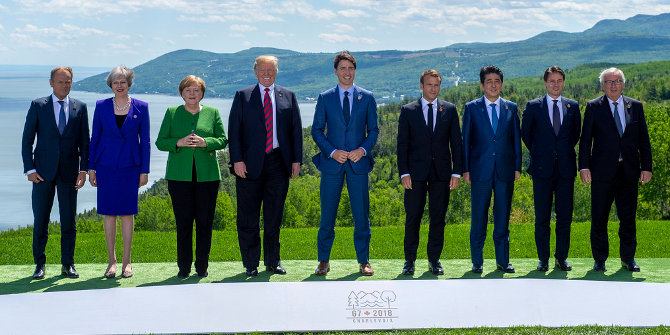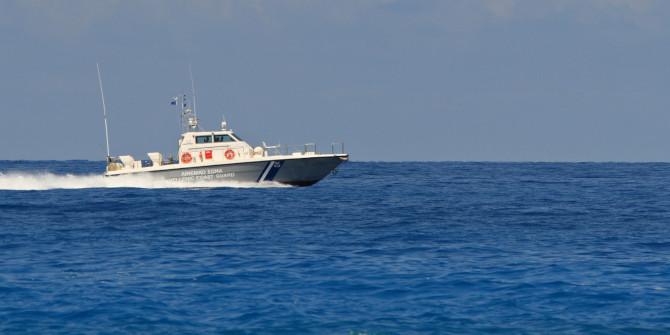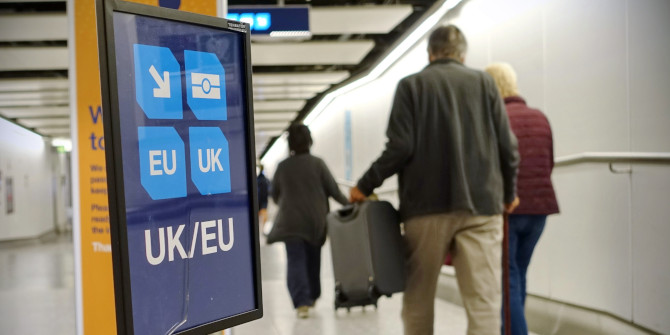Russia’s invasion of Ukraine was intended to produce a quick victory, but over a year since the fighting began, there appears little prospect of peace. Barry Buzan writes that the war is now about far more than territory and resources, with the outcome of the conflict set to have major implications for the identities of Ukraine, Russia, Europe and the West. Given the depth of what is at stake, there is unlikely to be a quick resolution.
When the Russian invasion of Ukraine began in February 2022, the mainstream view was that it would be over quickly. But then Russian incompetence and Ukrainian fortitude, both unexpected, combined to generate a more balanced conflict. Western arms and money gave Ukraine a fighting chance in a protracted war. The fighting settled into a version of 1914-18 plus drones: trenches, artillery duels, limited gains, high casualties. Bakhmut played Verdun, as the anvil on which a war of attrition would be hammered out.
Both sides are deeply dug in. As the war has unfolded, identity politics has come increasingly into play. For Ukraine, the issue is existential in two senses: its right and capability to exist as a self-governing nation; and its civilisational preference to be part of a democratic Europe. Putin succeeded in creating the very thing he wanted to destroy – a strong sense of Ukrainian nationalism.
For Russia, the issue is about its standing as a great power, and as a Eurasian civilisation. Retaining great power standing is peculiarly important to Russian identity. Without Ukraine, its material power would be dented. Its geostrategic position would be further weakened if Ukraine joined NATO. But its claim to be the core and protector of a Slavic, Orthodox civilisation that stands between Asia and Europe would be shattered. Russia’s identity remains profoundly split on the question of whether it is part of Europe, or a separate and freestanding civilisation. The Putin regime strongly promotes the latter view. It cannot but see the war in existential terms for its vision of Russia.
For Europe, as for Russia, the issue is about status and security, not the right to an independent existence. The obvious issue is whether a Russia victorious in Ukraine, and still imperially minded, would threaten the EU? The move of Finland and Sweden into NATO, and the hardening of military and economic frontiers with Russia, are strong evidence that Putin has created fear of Russia in Europe. Less obvious, but of more durable significance, is the importance of Ukraine to Europe’s, and the West’s, sense of status.
China and Russia continuously assert and celebrate the relative decline of the West. Many in the Global South cheer them on. In this context, Ukraine becomes a major symbol. It wants to become part of Europe and the West, and by doing so offers a strong rebuke to their image of decline. If Europe and the West fail to prevent a Russian victory in Ukraine, that would hugely reinforce the idea that they are in decline. Although this logic is strongest for Europe, it also applies to Japan, Australia, and, for now, the US.
Looked at in this light, the Ukraine war is not just about territory and resources, though those play a part. It is mainly about the identity politics of all the parties involved. The location of the civilisational boundary between Russia and Europe has once again become fluid.
That makes it is much easier to see how this war could drag on, than to see how it might end. Defeat has huge, long-term costs for all the parties involved. Ukraine would be obliterated, and its people pushed into a political and societal meat-grinder. Russia would find its pretensions to be a civilisational core in pieces, and face growing dependence on an overweening China. It is hard to imagine that domestic political upheaval would not follow its defeat. Europe would be shown as weak, and face continuous pressure from an emboldened Russia. It would have to provide much more of its own defence. Given the depth of what is at stake, compromise solutions do not look durable. Compromise becomes more difficult as the sunk costs of the war rise.
The big question about all this comes in 2024: will the US elect a Trumpian president who wants to withdraw American support from Ukraine? At this point, the odds on that look 50-50. If it does, will Europe and Japan continue to back Ukraine in a long war? Or will they sue for a compromise peace that will be interpreted as a Russian win? Is Europe willing to resume full responsibility for its own defence as it has not done since 1941? Is the US prepared to signal the end of the Atlantic alliance, and probably the breakup of the West?
China will let the war drag on, certainly until 2024. It cares little about the outcome for Ukraine. It is happy to see the West drained and distracted, and it gains whether Russia is strengthened or weakened. Given its strategic partnership with Russia, it is not a plausible mediator. The war in Ukraine might look like a local affair. It is not. The nature of the post-Western world order substantially hangs on its outcome.
This article is part of a series of articles titled ‘War and Peace in Ukraine’. The first article in the series, by Professor Michael Cox, is available here.
Note: This article gives the views of the author, not the position of EUROPP – European Politics and Policy or the London School of Economics. Featured image credit: European Union






China, win win situation?